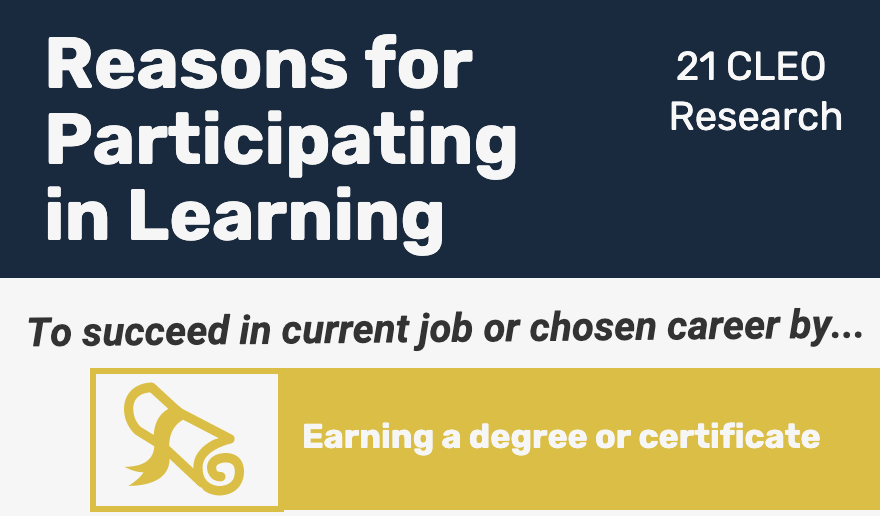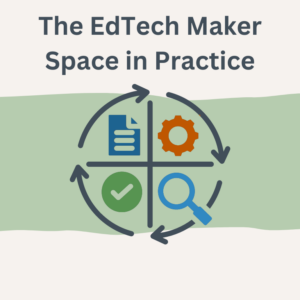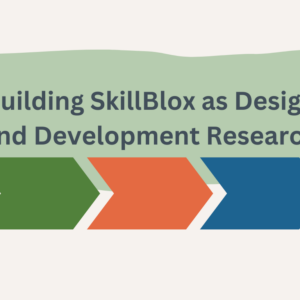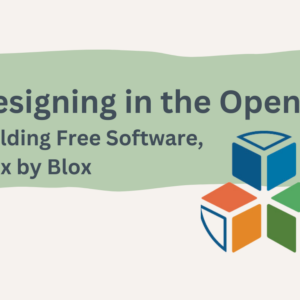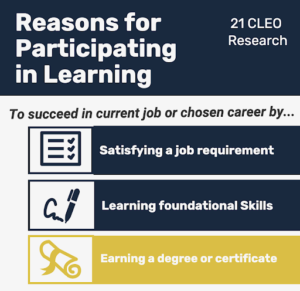
By 21CLEO Research Team
In earlier blog posts, we talked about how we are using persona as a research tool and our process for creating personas. As noted in our earlier posts, working learners participate in employer-sponsored learning opportunities for a variety of reasons. We’ve previously shared the personas of people who were learning foundational skills, like in Neberu: Working to feel comfortable interacting with English speakers and in Alimayu: College-educated retail worker learning English. We’ve also written about workers trying to satisfy a job requirement in Elise: Juggling Work, Required Training, and Long-Term Goals. In our final two blog posts we offer personas based on people who are working to earn a degree or certificate, including Regina: Healthcare worker seeking to establish a career and, here in our final persona to date, Dani, an hourly frontline supervisor who wants to earn a certificate and advance her career.
Our Analytical Lens
As we mentioned in our last blog post, as we worked on the development of personas presented in this and previous blog posts, historic events lead us to rethink how we were approaching our data. We realized that in order to account for economic inequities and mitigate the impact of our lens as white women, we needed to add an antiracist framing to the analysis of our interviews with working learners. You’ll read more about that in upcoming posts, but for now, understand that we developed this persona and the previous one with heightened sensitivity that, as white women, we cannot fully understand the lived experience of the front-line service workers we interviewed – many of whom were people of color.
Dani
This persona introduces Dani, a front-line supervisor who is seeking certification for advancement. Dani is representative of a number of the working learners we interviewed. As a college graduate and person of color who has been working for a number of years, Dani is looking to advance in her career. She is a hard worker with clear goals, yet she is stymied by limited opportunities presented by her employer. Viewing Dani’s interview data through an antiracist lens helped us see that Dani’s commitment to training and certification was not enough for her to move forward in her career. To advance, Dani needs opportunities to network with others within her organization and within her industry, so they might help her identify important next steps and opportunities that arise.
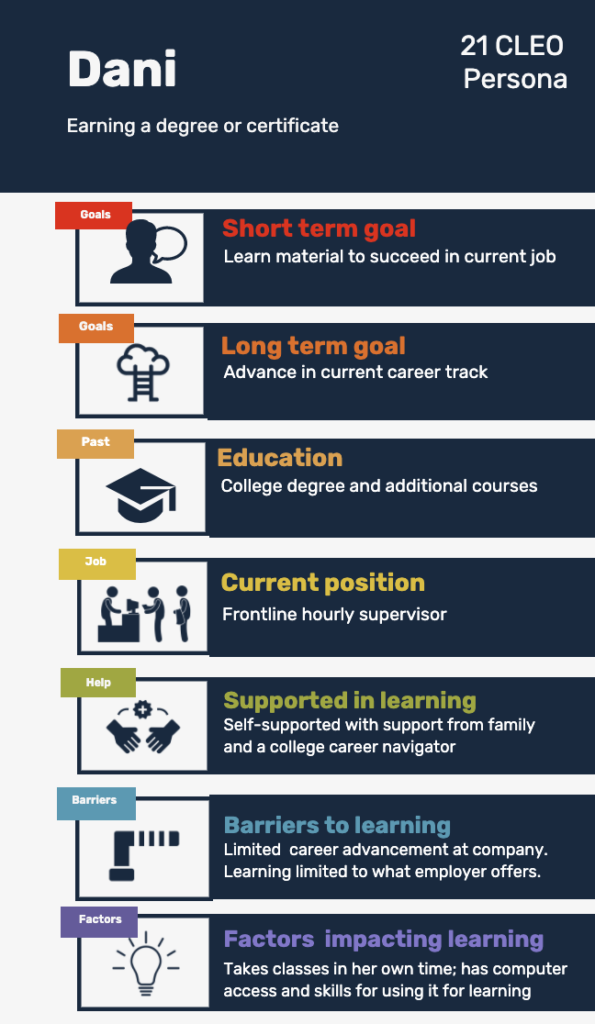
Dani holds a college degree and currently works as a front-desk supervisor for a major hotel chain. She has worked for the same company for many years, starting in an entry-level position. She has taken hospitality classes offered online by her employer, a supervisory certification program at a local community college, and most recently took advantage of courses available through Linked-in and paid for by her local workforce development office. She completes coursework on her own time using her personal computer.
In her job, Dani uses what she is learning to help her team perform better. Dani has benefitted the most from course material that focuses on building interpersonal relationships and handling conflict. She sees her coursework as being directly applicable to her current job, and one of her final certification course assignments was directly connected to her work. She has also used the course work to explore other possible careers, but thinks strategically about what will build on courses she has already taken rather than starting from the beginning with new material. Dani is able to pursue learning opportunities and career growth because she has the emotional support of her spouse and has no child-rearing responsibilities.
The most significant barrier for Dani is the limited opportunity for growth within her company. Although she is encouraged by her direct supervisor to take courses, she has few connections outside of her immediate workplace that will help her find advancement opportunities in the larger company. She realizes that if she is to transition to a salaried position and move up in management, she either needs access to information and mentors who might point to other jobs in the company, or she may need to change employers. She is also limited by the type of learning opportunities available to her through her current employer because they are free for her and she does not want to take on debt.
Technology use is not an issue for Dani. She has a laptop and broadband at home that she uses for her coursework. On occasion, she can use the office computer to take a Linked-in course. Dani feels confident that she can figure out how to solve any technical problems because “Everything’s on YouTube.”
Dani shows us that no amount of training can support career advancement and retention if it is not coupled with real opportunities for networks and mentoring that can lead to promotion and more responsibility at work. We hope meeting Dani helps key stakeholders within employer-supported learning opportunities better understand the perspectives and experiences of highly motivated, frontline workers who may yet possess the social capital to make training and education pay off in the workplace.

